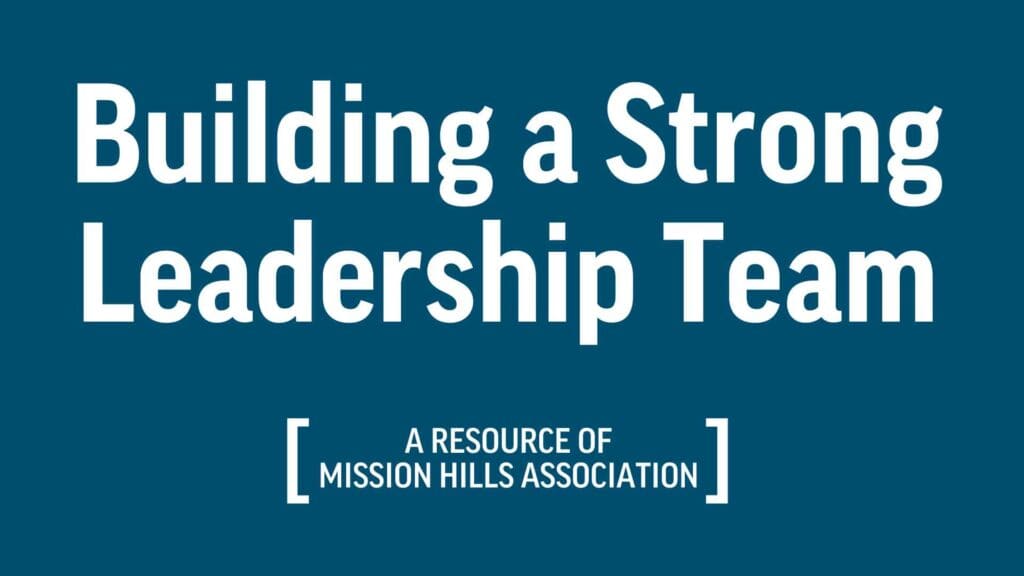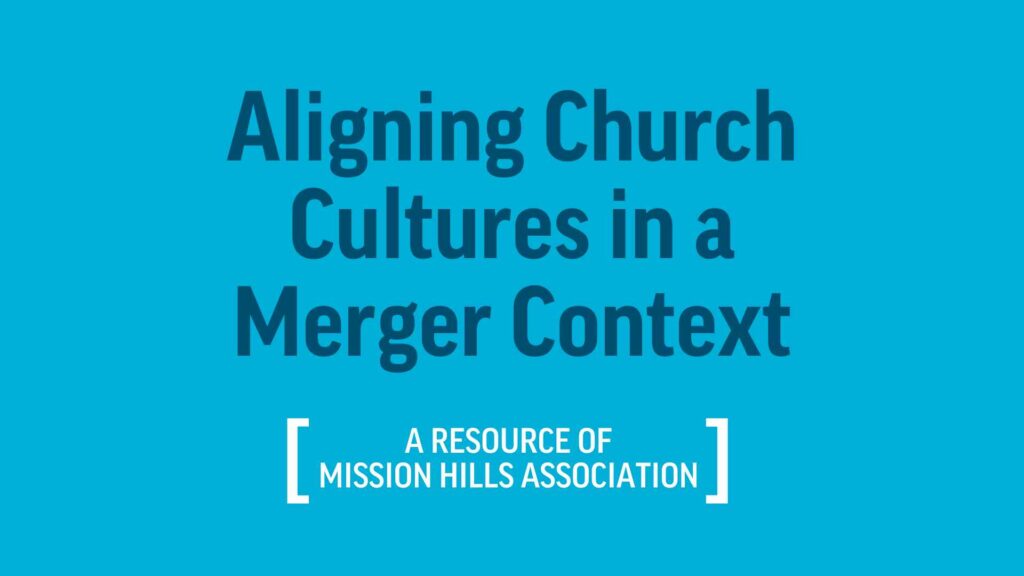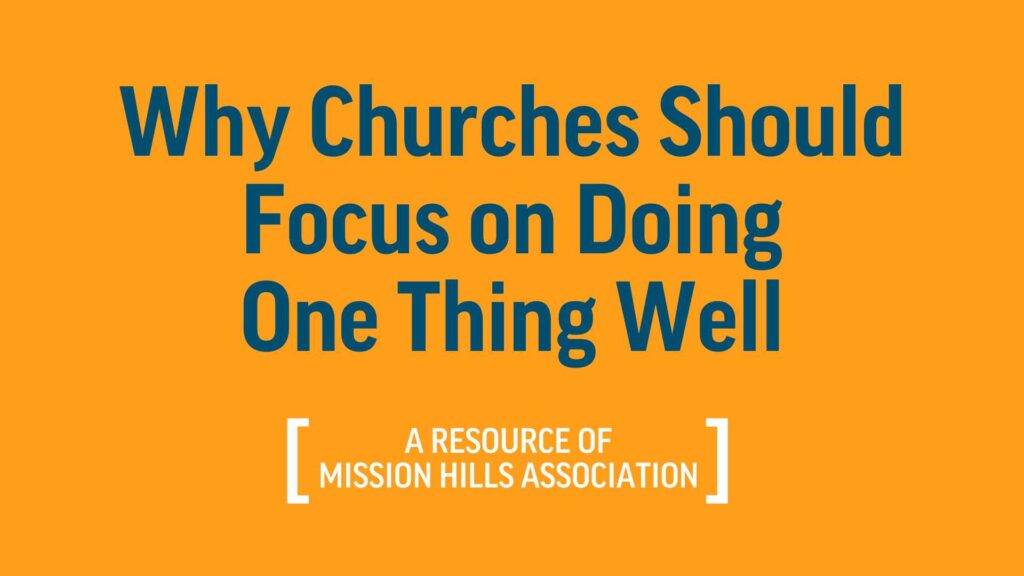
Creating a healthy church work culture is a double-edged sword. You don’t want to force a “good” culture, but you also can’t assume that it’s going to happen out of thin air.
Having an idealized, picture-perfect staff isn’t the goal. And yet while your church staff isn’t everything, they are the foundation of the rest of the life of your congregation, whether you have one staff member or 50.
Your staff is important not because they can make your church look good, but because the true health of your staff will inform the health of your church for the long haul.
Mission Hills Association cares about the health of your staff because ultimately we care about the health of your entire church.
The foundation you lay with your staff will set the tone for their experience serving the church. Here are our best practices for hiring, onboarding, and leading your church staff.
Hiring
Working in retrospect to develop your church staff is so much harder than intentionally hiring from the beginning. Every church leader knows that searching for the right person to fill a role in your church is hard no matter what. Taking your time in the hiring process is painful – but that patience can pay off in finding the absolute best fit for your church. Practically, this looks like using the resources that are already available to you. Here are some of our go-to ways to begin a job search for our team:
Involve your team
Get ideas and recommendations from your department heads or small church staff about where to look. Your team knows what kind of team member will be a great fit, and they may have resources you’re not aware of to find the right employee.
Denver Seminary
We get to benefit from having Denver Seminary as a local resource – put it to good use! Their job board is a great place to get started on your search.
Don’t rely on Indeed
Indeed is a great tool for a general job search, but it can be too generalized for searching for church staff, especially when you’re just beginning to look.
Onboarding
No matter your church size, focus on developing an onboarding plan for your staff. Onboarding is important because it sets your staff up for success from day one. No new staff member should spend their first day or week on the job second guessing what they should be doing. The goal is to help them feel assured, calm, and confident as they enter their new workplace Here are things we do to equip every new employee at Mission Hills:
Hiring manager
Every new employee at Mission Hills spends their first day with our hiring manager in order to get up to speed on how life in the office works.
Training
There are a handful of training videos that new hires watch on the first day, as well as basic IT training.
Team connections
We host a lunch with their team, as well as assign the new hire to a staff buddy who will get them connected to the rest of the staff. All of these tools are helpful to get them acclimated in a natural and intentional way from the get-go.
Culture
Establishing a staff culture can’t be forced, but there are ways to foster a positive experience on your church’s teams, mostly through consistent effort, events, and check-ins. We do this through events like: a monthly staff huddle, a staff Christmas party, and an annual staff retreat.
Valuing and honoring your staff is the end goal for all of these events, processes, and plans. Our prayer for every church we interact with is that their staff would thrive in a healthy work environment that is only made better by the support they receive from their fellow believers.
We are here to provide support as you work to help your staff thrive in any and every way.




